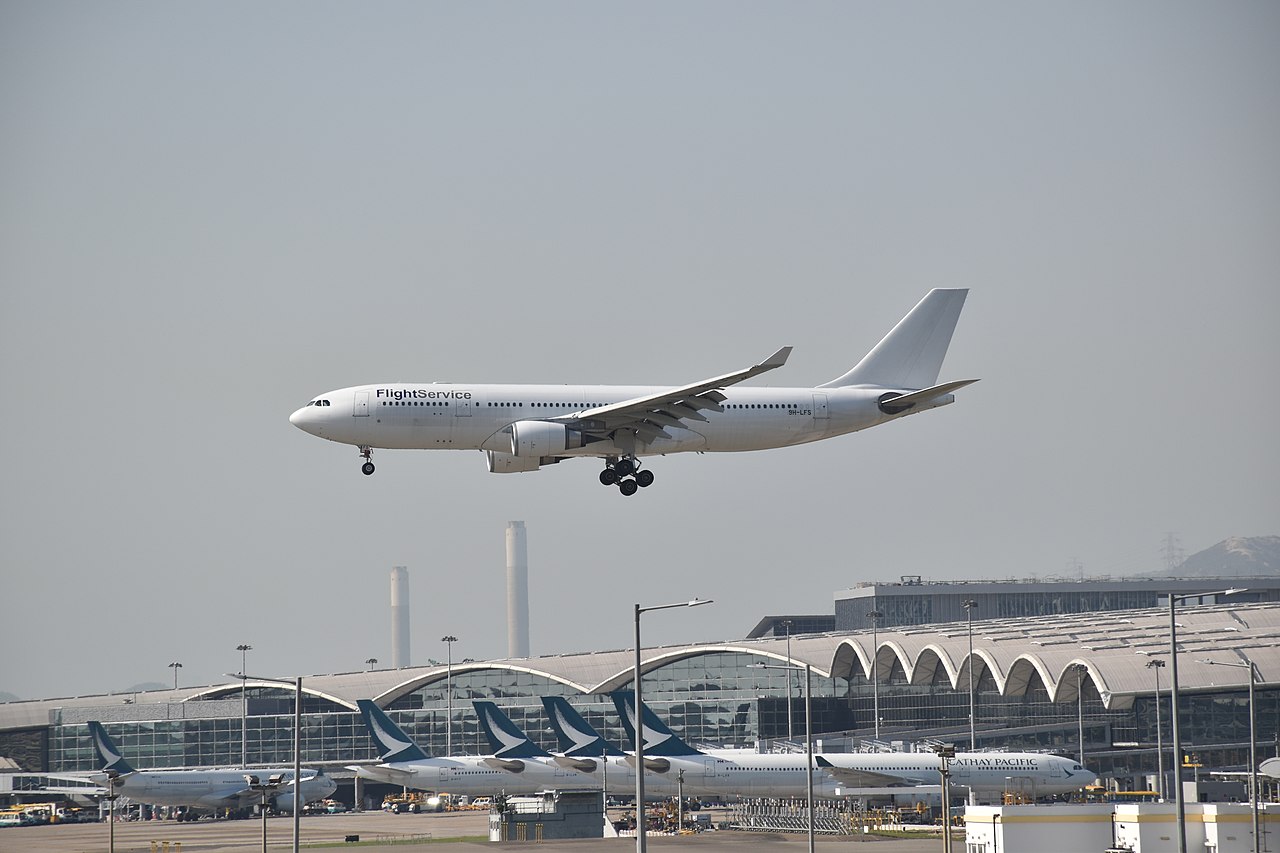The shipment of animals across borders is a complex and highly regulated process, with strict protocols in place to ensure the welfare of the animals involved. However, recent allegations of an illegal monkey shipment by AELF FlightServices have raised concerns about the adequacy of these regulations and the potential impact on animal welfare.
The allegations, brought to light by the animal rights organization PETA, center around a shipment of monkeys from Mauritius to the United States. PETA claims that the monkeys were transported in overcrowded and unsanitary conditions, without proper ventilation or access to food and water.
The organization has filed a complaint with federal authorities, calling for an investigation into the matter and appropriate action to be taken against those responsible.
Allegations of Illegal Monkey Shipment
Animal rights organization PETA has filed a complaint with the U.S. Department of Agriculture (USDA) alleging that aelf flightservices shipped monkeys illegally from Mauritius to the United States.
PETA alleges that aelf flightservices violated the Animal Welfare Act by failing to provide the monkeys with adequate food, water, and ventilation during transport. The organization also alleges that the monkeys were not properly quarantined before being shipped to the United States.
USDA Response
The USDA has confirmed that it is investigating PETA’s complaint. The agency has not yet released any findings.
PETA’s Concerns
PETA is concerned that the monkeys may have suffered unnecessarily during transport. The organization is also concerned that the monkeys may have been exposed to diseases that could be transmitted to humans.
PETA’s Complaint to Federal Authorities

The animal rights organization PETA filed a formal complaint with the United States Department of Agriculture (USDA) and the U.S. Fish and Wildlife Service (USFWS) regarding the alleged illegal shipment of monkeys by Aelf FlightServices.
PETA’s complaint alleges that Aelf FlightServices violated the Animal Welfare Act (AWA) and the Endangered Species Act (ESA) by shipping monkeys without proper permits and in unsanitary conditions.
Key Points of the Complaint
- Aelf FlightServices allegedly shipped monkeys without the required permits from the USDA and the USFWS.
- The monkeys were allegedly transported in unsanitary conditions, including cramped cages and without adequate ventilation.
- PETA alleges that Aelf FlightServices failed to provide proper veterinary care for the monkeys during transport.
Potential Consequences of the Complaint
- If the USDA and USFWS find that Aelf FlightServices violated the AWA and ESA, the company could face fines, license suspensions, or other penalties.
- The complaint could also lead to criminal charges against the company’s employees or executives.
- The complaint has brought public attention to the issue of illegal animal shipments, which could lead to increased scrutiny of the industry.
AELF FlightServices’ Response
AELF FlightServices has vehemently denied the allegations made by PETA, claiming that they adhere to the highest standards of animal welfare and strictly comply with all applicable regulations.
The company has stated that they have conducted a thorough internal investigation and found no evidence to support the claims made by PETA. They have also emphasized their commitment to ethical and responsible practices throughout their operations.
Actions Taken by AELF FlightServices
- Launched an internal investigation into the allegations.
- Reviewed and updated their animal handling procedures.
- Increased training for staff on animal welfare best practices.
- Engaged with independent animal welfare experts to assess their practices.
Statements from AELF FlightServices Representatives
“We take the welfare of animals entrusted to our care very seriously,” said a spokesperson for AELF FlightServices. “We have a long-standing commitment to ethical and responsible practices, and we are confident that our internal investigation will clear us of these unfounded allegations.”
“We are committed to working with regulatory authorities and animal welfare organizations to ensure the highest standards of care for all animals transported on our flights,” added the spokesperson.
Impact on Animal Welfare
The alleged illegal shipment of monkeys raises significant concerns regarding the welfare of these animals. The conditions in which they were transported, the potential health risks they faced, and the ethical implications of their treatment are all areas of concern.
Ethical Concerns
The illegal shipment of animals for research purposes raises ethical concerns about the treatment of animals in scientific experiments. Animals should be treated with respect and compassion, and their welfare should be a top priority. The use of animals in research should be limited to necessary and justifiable purposes, and their suffering should be minimized as much as possible.
In the case of the alleged illegal shipment of monkeys, the animals were reportedly subjected to cramped and unsanitary conditions during transport. They may have been denied adequate food, water, and veterinary care, leading to unnecessary suffering and potential health problems.
Health Risks
The illegal shipment of animals also poses health risks to the animals themselves and to the human population. Animals that are transported under unsanitary conditions can become sick and spread diseases to other animals and humans. The monkeys in this case may have been exposed to pathogens that could cause illness in themselves or in the people who handle them.
For example, monkeys are known to carry viruses such as simian immunodeficiency virus (SIV), which can cause AIDS-like symptoms in humans. If the monkeys in this case were infected with SIV, they could potentially transmit the virus to humans who come into contact with them.
Statistics
According to the World Health Organization (WHO), an estimated 75% of emerging infectious diseases in humans are zoonotic, meaning they are transmitted from animals to humans. The illegal shipment of animals can increase the risk of zoonotic diseases by bringing animals that carry pathogens into contact with human populations.
In the United States, the Centers for Disease Control and Prevention (CDC) estimates that zoonotic diseases cause approximately 75,000 hospitalizations and 5,000 deaths each year.
Regulatory Framework

The shipment of animals, including non-human primates like monkeys, is governed by a comprehensive regulatory framework designed to ensure their welfare and prevent illegal activities. This framework includes both national and international laws, as well as enforcement mechanisms to ensure compliance.
At the national level, the Animal Welfare Act (AWA) is the primary legislation governing the treatment of animals in the United States. The AWA establishes minimum standards of care for animals used in research, exhibition, or transport. It also requires that all individuals involved in the transport of animals be licensed and registered with the United States Department of Agriculture (USDA).
Additionally, the Lacey Act prohibits the import, export, or interstate transport of illegally obtained animals or animal parts.
Enforcement Mechanisms
The USDA is responsible for enforcing the AWA and the Lacey Act. The USDA’s Animal and Plant Health Inspection Service (APHIS) conducts inspections of animal facilities and transport vehicles to ensure compliance with the regulations. APHIS also investigates allegations of animal cruelty and neglect and may impose penalties on individuals or businesses found to be in violation of the law.
Gaps and Weaknesses
Despite the existence of a comprehensive regulatory framework, there are still some gaps and weaknesses that can be exploited by individuals or businesses seeking to engage in illegal animal shipments. One challenge is the lack of harmonization between international regulations, which can create opportunities for animals to be illegally imported or exported.
Additionally, the enforcement of animal welfare laws can be difficult, particularly in cases where animals are transported across state or international borders. This can make it challenging for authorities to track and apprehend individuals involved in illegal activities.
Public Reaction
The allegations against AELF FlightServices sparked widespread public outrage and condemnation. Animal rights organizations, including PETA, swiftly condemned the company’s actions, calling for an immediate investigation and prosecution. The news was met with shock and disbelief by the general public, many of whom expressed their disgust and anger on social media platforms.
Media Coverage
The allegations garnered significant media attention, with major news outlets reporting on the story and interviewing animal rights advocates and experts. The media coverage highlighted the potential cruelty and suffering inflicted on the monkeys, raising awareness about the illegal wildlife trade and its impact on animal welfare.
Social Media Sentiment
The public’s outrage was amplified on social media, where the hashtag #StopMonkeySmuggling trended worldwide. Animal lovers and concerned citizens alike shared their outrage, demanding justice for the monkeys and accountability for those responsible. The social media backlash created a groundswell of public pressure, putting the spotlight on the investigation and demanding action from authorities.
Last Point
The outcome of PETA’s complaint and the subsequent investigation will have significant implications for the regulation of animal shipments and the welfare of animals involved in such activities. It is crucial that authorities thoroughly investigate the allegations and take appropriate action to prevent similar incidents in the future, ensuring the humane treatment of animals during transport.
Q&A
What are the specific allegations against AELF FlightServices?
PETA alleges that AELF FlightServices transported monkeys in overcrowded and unsanitary conditions, without proper ventilation or access to food and water during a shipment from Mauritius to the United States.
What is PETA’s role in the complaint?
PETA filed a complaint with federal authorities, calling for an investigation into the alleged illegal monkey shipment and appropriate action to be taken against those responsible.
What are the potential consequences of the complaint?
The investigation could lead to legal action against AELF FlightServices, including fines, penalties, or even criminal charges. It could also result in changes to regulations governing animal shipments to prevent similar incidents in the future.
What are the ethical concerns raised by the allegations?
The allegations raise concerns about the welfare of animals during transport, the adequacy of regulations governing animal shipments, and the potential for animal suffering in the pursuit of commercial activities.




